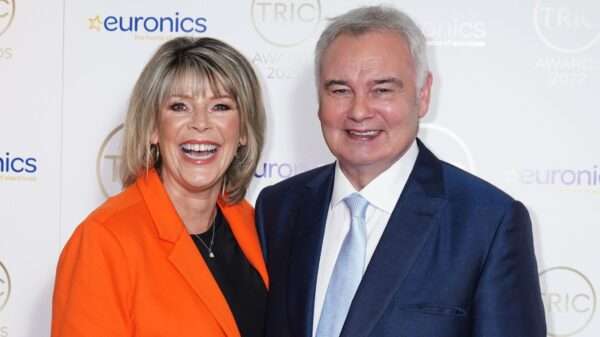The recent broadcast of Good Morning Britain (GMB) sparked a significant backlash, leading to thousands of complaints lodged with Ofcom. The controversy stemmed from an interview conducted by Ed Balls with his wife, Yvette Cooper, as well as an exchange with Coventry South MP Zarah Sultana. The Monday programme drew intense criticism, resulting in 8,201 complaints to the UK’s communications regulator.
Ed Balls, a former Labour MP and co-host of GMB, interviewed his spouse, Yvette Cooper, who is also a prominent Labour politician and the current Home Secretary. This segment of the show was met with accusations of potential bias and conflict of interest, as many viewers questioned the appropriateness of Balls interviewing his own wife on a national platform. Critics argued that such an arrangement could undermine journalistic integrity and impartiality, essential components of broadcast journalism.
In addition to the Cooper-Balls interview, the programme also featured an interaction with MP Zarah Sultana, which further fueled the complaints. Although specific details of the exchange with Sultana were not highlighted, the segment contributed to the overall viewer dissatisfaction, compounding the criticisms aimed at the show’s handling of political interviews.
Ofcom’s role in this situation involves assessing the nature of the complaints and determining whether GMB breached broadcasting standards. The regulator will examine the content to ensure compliance with rules around impartiality, fairness, and potential conflicts of interest. The significant volume of complaints indicates a widespread concern among viewers about the programme’s editorial decisions and the potential implications for public trust in the media.
The incident highlights ongoing challenges in political journalism, particularly regarding perceptions of bias and the importance of maintaining public trust. While it is not uncommon for journalists to have personal connections with interview subjects, the visibility and influence of such relationships can provoke strong reactions, as demonstrated by the thousands of complaints received by Ofcom.
GMB and its producers are likely to face scrutiny and pressure to address these concerns, potentially leading to changes in how interviews are conducted and who conducts them. This situation underscores the delicate balance media organizations must strike between delivering engaging content and upholding ethical standards.
The outcome of Ofcom’s investigation will be closely watched, as it could set precedents for future broadcasts and the handling of similar situations. In the meantime, the complaints serve as a reminder of the critical role of regulatory bodies in maintaining standards and ensuring that public broadcasting remains fair and trustworthy.









































